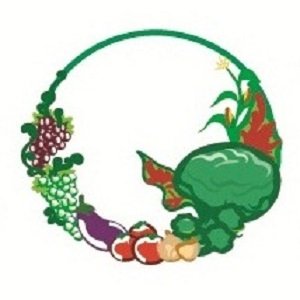Featherstone and Hoch Orchard
Featherstone Farm is leasing Hoch Orchard for the 2025 and 2026 seasons, with hopes that we can continue to manage the orchard after these first two years. The opportunity to lease Hoch came knocking at the perfect time: Featherstone has recently been exploring ways to expand and improve our CSA program in new and innovative ways that preserve our values and goals. Hoch, a legacy organic orchard only 40 minutes from our Rushford farm, aligned well with our values of preserving both our local food system and ecosystem. The owner, Harry Hoch, has been in the process of retirement, and wanted the orchard to be in good hands and remain in production. We are very excited, as the apples bloom this spring, to be caring for this land and continuing the history of Hoch Orchard, and thrilled with the opportunity to provide our CSA members with fruit grown and harvested by Featherstone farmers!
The previous owner/operator, Harry, was doing a lot of experimenting on the property. He planted 40+ varieties of apples, an uncommon sight for production orchards and quite unique to Hoch. This trial-and-error approach was used to see what varieties worked best in our climate and with organic production systems, and ensured consistent production throughout the growing season. As soon as one variety waned in production, another would peak. This unique system makes managing the orchard a dynamic and complicated feat, and is not Featherstone’s vision for the future but is the reality of the orchard right now. For more on the history of the property and the Hoch’s, check out their website.
Currently, Featherstone is able to manage 17 acres of the orchard. Of those acres, 56% are certified organic trees and the remaining are transitional. This means 44% of the trees are in the process of becoming certified organic, which takes 3 years. We will be 100% certified organic by 2026, and are currently managing all the apples with the same organic principles and practices, the only difference is the transitional trees were sprayed in 2022.
According to Ian, Featherstone’s Orchard Manager, a decent amount of the organic acreage is not in full bloom and will not bear fruit this year due to lack of pruning and overproduction last year. Ian estimates that we will actually have more transitional fruit to offer than organic fruit this year. The apples in our CSA boxes will be well labeled as organic or transitional, but know we are managing them all the same!
How do you manage an apple orchard organically? Thankfully, we have Ian!
Ian: “I have been working on farms since 2012 and graduated from the University of Minnesota in 2014 with a B.S. in Horticulture. After graduation I worked at a small CSA vegetable farm north of the Twin Cities. The subsequent growing season, I started working at Hoch Orchard, the orchard I am now managing. I worked at Hoch for four years, starting as an intern and moving up to being a crew leader as well as the Head Hard Cider Maker. After 4 years it was time to move on and I transitioned into working at Featherstone, where I have been for the past seven years, mostly working in Distribution and operating equipment. Now, in a full circle moment, I am back at the Orchard in a management role. Orchard Management requires wearing many hats. Everything from hard labor during pruning season, to office work, and leading harvest crews. Currently I am knee deep in planning and implementing an organic pest and disease management program, including getting ready to hang hundreds of mating disrupting pheromone dispensers throughout the orchard, to naturally repel and confuse Codling Moth, a major apple pest.”
The decisions we make in the spring can really affect our fall harvest, as well as the successive years’ harvests (see: too many blooms last year in our organic blocks resulting in minimal fruiting this season). Right now, in May, the trees are blooming and being pollinated. Each pollinated flower becomes an apple. If blooms don't get pollinated, or too many get pollinated, the trees produce a poor crop. Similarly, right now there are diseases and pests that we are controlling before a single apple has formed. If we don't adequately manage disease and pests now, that will directly impact the quality and quantity of the crop in August, September, and October. Orchard Management is a long term, big picture job that requires patience and perseverance. We are looking forward to a nice apple harvest this season, with better ones to come!





